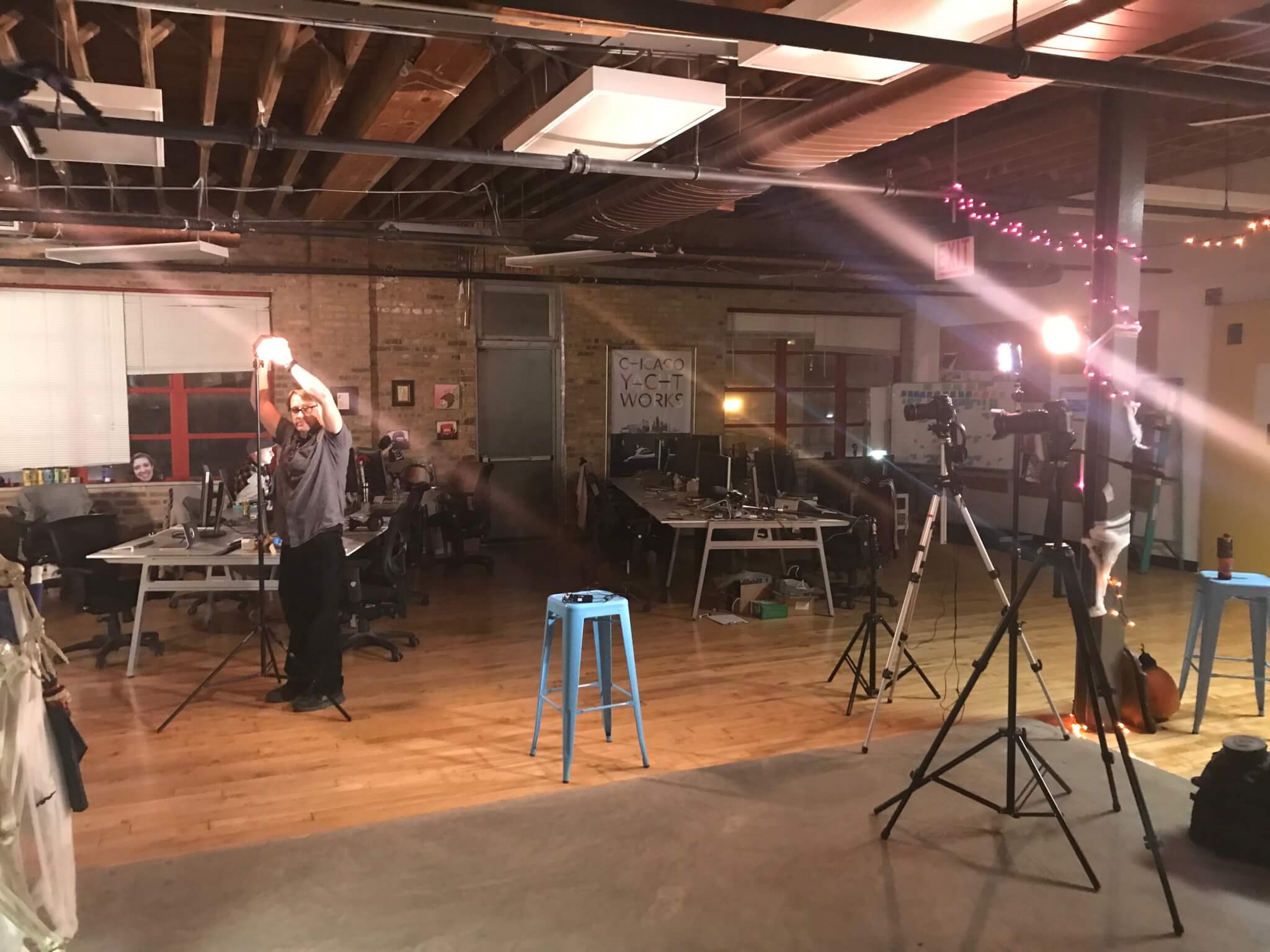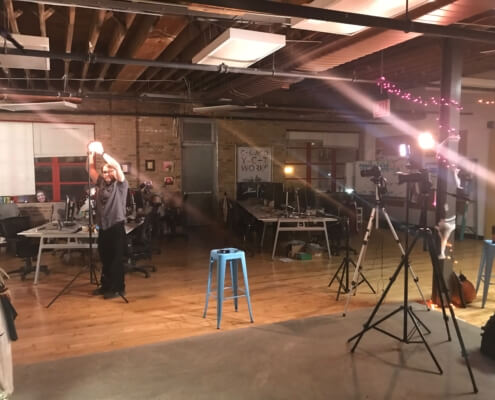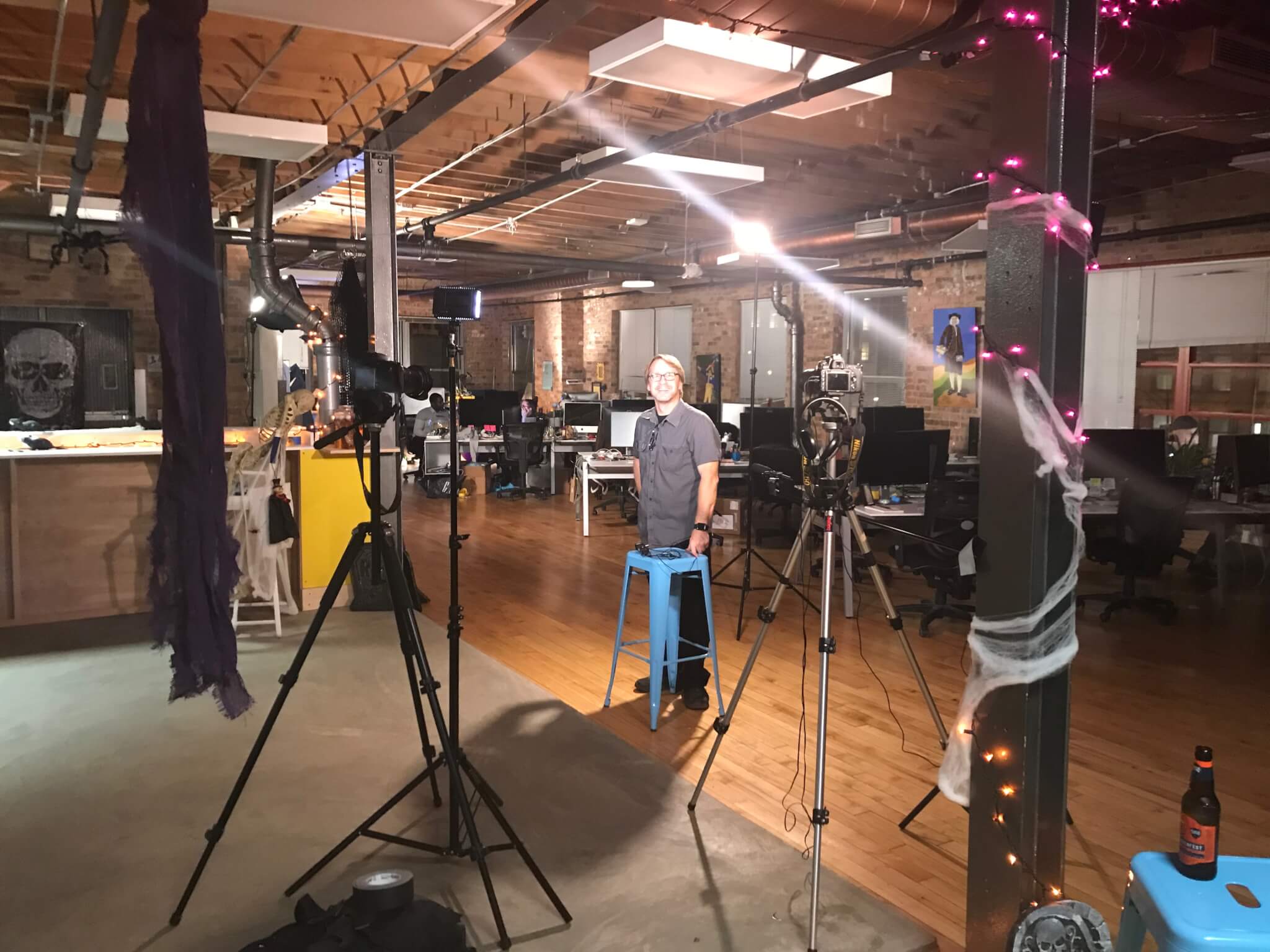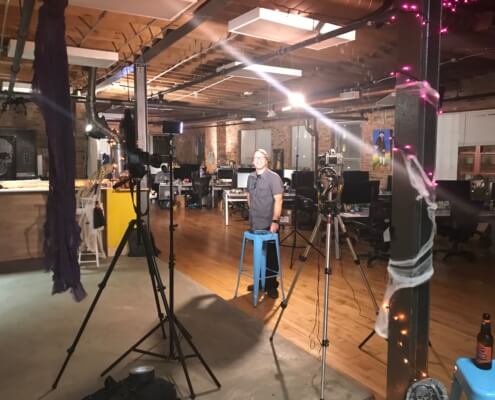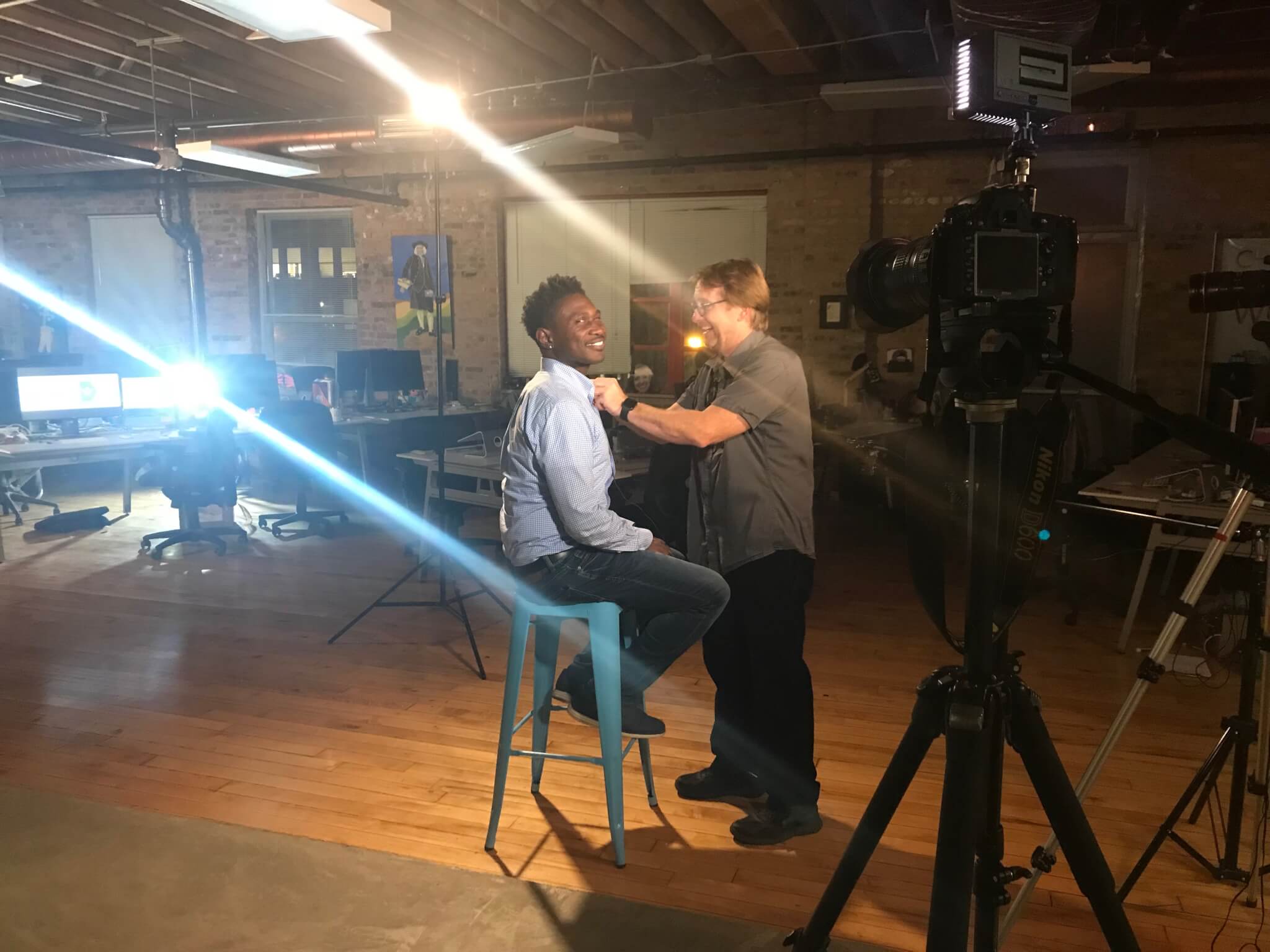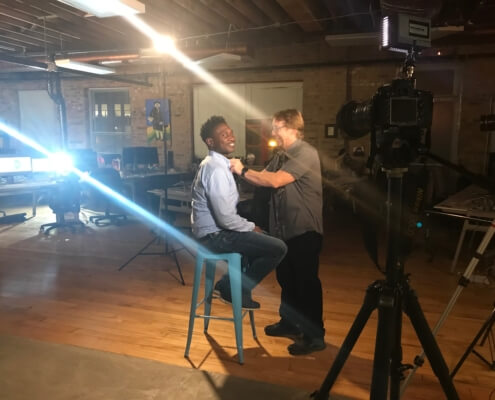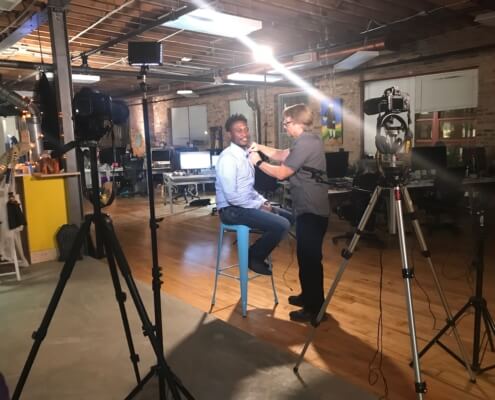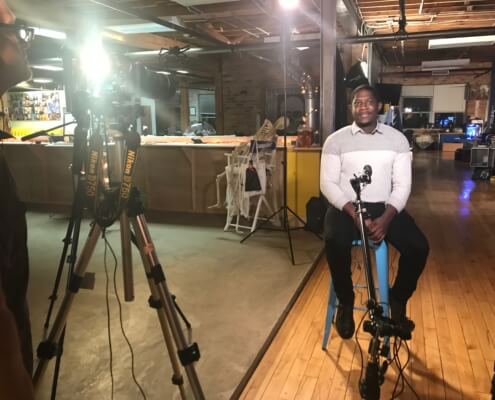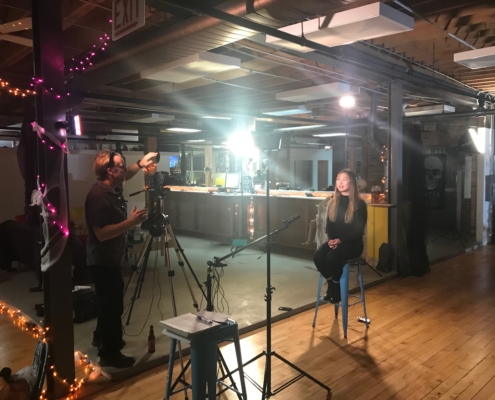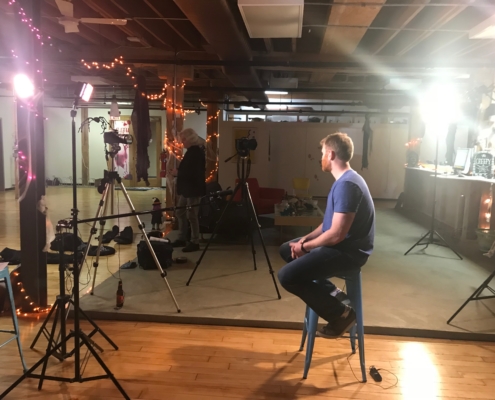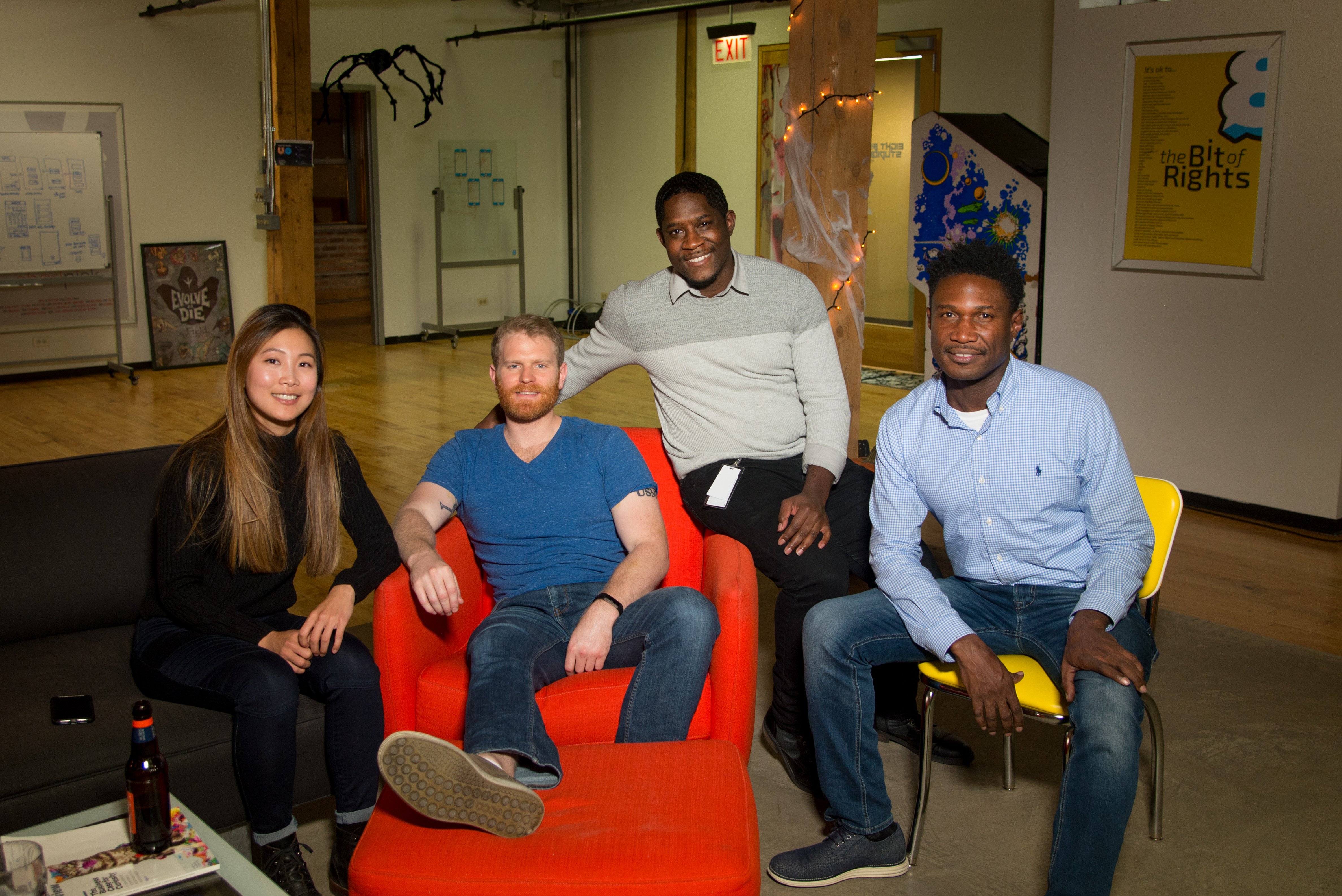Last fall, we had the opportunity to make an awesome highlight video with some of our graduates. Our objective, generally speaking, was to share the impact Code Platoon has on the lives of veterans and military spouses.
Ultimately, though, we needed this video to feature the hard work and success stories of our incredible alumni. They’re the heroes in the story, and Code Platoon is the sword they choose to wield to achieve their quest of becoming full-time software developers. The video we created was meant to show the program impact of Code Platoon through these alumni stories.
While the debut of this video was at our first formal fundraising event, the hope is that it can help raise awareness of the impact our community can have on veterans. We also want to help our viewers understand that, while determination and sacrifice are in the DNA of these students, they need tools and training like Code Platoon in order to make it to the next step in their post-service careers.
We also hope that prospective students can see themselves in the various alumni featured, while a prospective donor can picture the impact their funding will have on real people. It’s our genuine hope that when our audience notices a little reflection of themselves in our students, it will give them the inspiration to participate as students or contributors as well!
A lot goes into creating such a video. Here’s more information on how we brought our goals to life, and the people who helped make it possible.
Planning the Code Platoon alumni video
The Code Platoon team had a tight timeline for production. Once we decided to create the video for our fundraiser, we were confronted with planning, shooting, and editing all before the looming date we had already set for the event only a month away.
The first step was deciding what look and feel we wanted, because the stories themselves were coming from the students, not us. We ended up picking out a couple example videos of what we were looking to achieve. Just in case anyone got camera-shy, we also planned out some areas of focus if graduates wanted to know which parts of their stories we wanted to hear most.
That being said, the team shooting and editing ended up injecting our project with their own inspired vision, and once our graduates started talking, they didn’t need any help touching on the things that resonate with other applicants and contributors!
And logistically, the hardest part was finding a convenient time for all of our alumni and staff to be available for the actual shoot. Coordinating schedules and compromising on availability meant that we ended up shooting on a weekday evening!
Before we got in front of the cameras, though, we were already fortunate to have a great deal of support and flexibility from key stakeholders, which allowed us to plan, shoot and edit the video in only about three weeks.
Shooting, producing, and presenting the video
What started out as a calendar challenge ended up being a fun night together with pizza, laughs, and good memories of the Code Platoon classroom experience.
The video was shot at Eight Bit Studios in Chicago by Chris Ocken of Ocken Photography. Editing, music, and graphics were provided by Al Benoit and the team at The Mill. These guys put their unique talents into our end product, and they were able to give life to these graduate experiences in a way that only video can do.
We debuted the video at our first annual fundraiser, Celebrate Code Platoon 2018. From conversations with attendees, what our graduates said was very clear: Veterans often just need a little backup when training for their post-service careers, and Code Platoon provided exactly the platform they needed to excel.
And while the facts are easy to write, the human element is something that these students share better in their own words, so we encourage you to watch the video for yourself!
Transcription
Michael Dorsey: I was in the military, in the Navy for five years. I was a Seabee, which is actually a builder, doing construction.
Edward Wright: I joined in ’99. My first duty station was at Virginia Beach. I worked on the F-14 war plane.
John Cibula: I went the route of Recon Marine, which is like a specialized infantry unit.
Jyn Kim: I joined the military hoping that I could be a citizen and that’s how I got it.
Michael Dorsey: After getting out of the military, I was like all right, now is the time. Let’s go ahead and go after this dream that I’ve had for the longest. About a year and a half later, actually found Code Platoon during a Google search. And it came just in time. I was getting ready to move back to California, back away from my family. And Code Platoon pretty much found me.
Jyn Kim: So, when I join Army, I already knew about Code Platoon through my friend and I thought there’s another reason to join Army because there is a coding boot camp just for veterans. My parents just couldn’t believe it, that I’m studying for a software developer and they were just inspired by the fact that I’m studying computer languages, so I think that was my motivation.
Michael Dorsey: The environment itself was just indicative of what the family oriented lifestyle of the military was.
Jyn Kim: I feel like everyone’s a family. It’s not like they have this obligation to come. They really wanted to see us success in this industry.
John Cibula: They know that you have to be able to adapt, because … especially to software. In the military, things are changing constantly, so if you don’t adapt you’re going to die. And they did that. It was great. And I hear now that they’re talking about … they’re basically adapting to what the needs of the software community are and they’re not stuck in their old ways, which I think is great.
Edward Wright: It was a great experience. I would do it all over again. I tell my family members, anybody I come across I would do this all over again. If I could talk my spouse into coming I would.
John Cibula: What I did learn from Code Platoon is basically you just learn how to learn. Once I learned kind of the baseline I wasn’t really afraid of learning a new language or learning a whole new field I guess basically. So, now I’m a Java developer. I do front office development. I basically work on applications for our traders to look at price data and some other stuff and make decisions from there. It’s pretty great actually.
Edward Wright: The place where I ended up at I felt was perfect. Just perfect for me. And that place is a company called Grainger. They’re an industrial company and working in aviation, I actually knew who they were before I ever got here. The guys at Grainger were pretty excited to hear that and I just thought it was good for that reason.
Michael Dorsey: Using the tactics that Code Platoon has taught me, talking to people, asking questions, being curious, asking why and finding out and having a drive to go after what you want and finding that answer has really helped me through all of this. And still is helping me to this day.
Jyn Kim: Code Platoon was great to all of us. It really changed our life and lifestyle. I think it was a turning point of my life.

